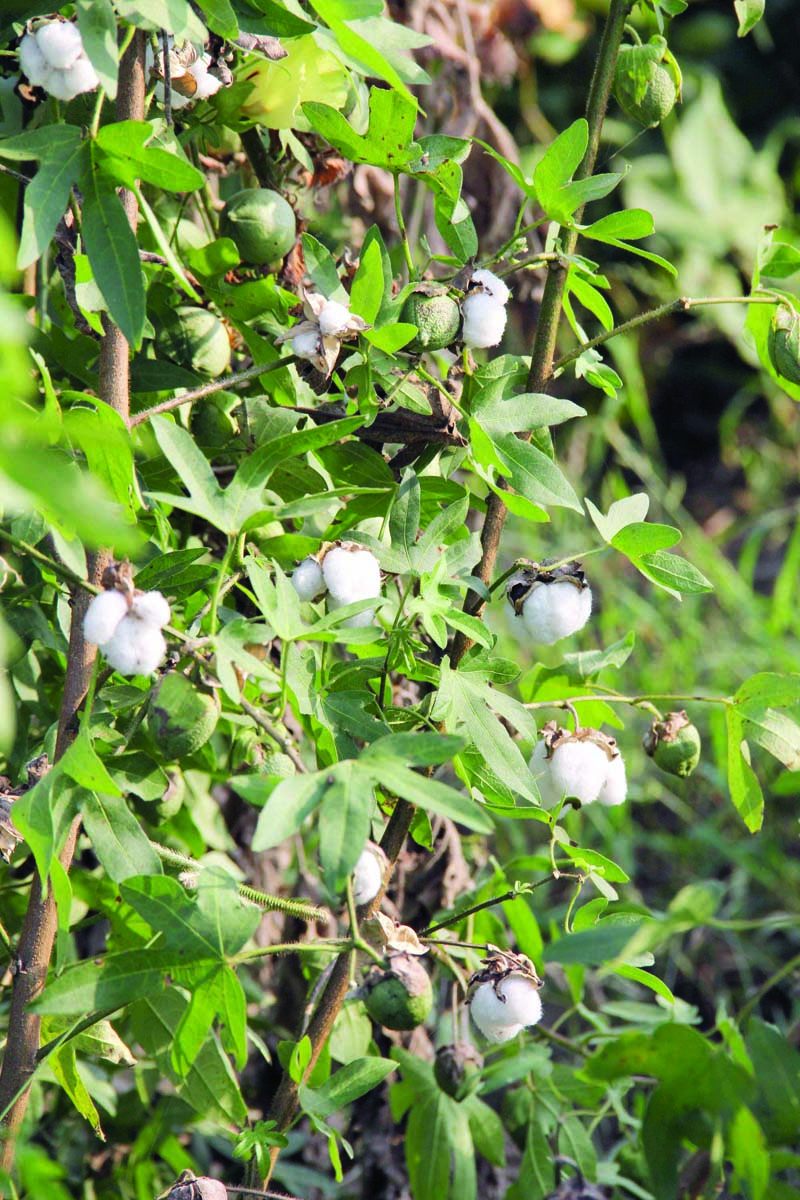
Prime Minister Nawaz Sharif announced a Rs341-billion bailout, to be implemented in different phases, that would focus on direct cash transfers, subsidies, loans and reducing input costs.
However, farmers’ associations said parts of the package were disclosed in the budget announcement in June, but the ‘relief’ was yet to reach the sector.
“The announcement of Rs5,000 per acre support for cotton and rice growers will open new doors of corruption,” said Pakistan Kissan Ittehad President Khalid Khokhar. “Our main demand was to announce the support price for these two commodities, but we failed to convince the premier as the support price announcement, especially for cotton, was not in favour of textile lobbies.”
As per the farmers, cotton and rice growers are facing a per-acre loss of between Rs30,000 to Rs35,000. They say Rs5,000 as subsidy is insufficient.
Talking about fertiliser support, farmer lobbies claimed that the price of urea has already been increased by Rs200 per bag, and this subsidy was announced by Ishaq Dar in the budget due to farmers’ protests.
“There is a high possibility that support price announced for farmers would be masticated,” said Pakistan Rice Mills Association Chairman Faisal Cheema. “This might give some relief to the growers. But who will buy the paddy from farmers when the godowns are overloaded with existing stocks? The announcement of a support price, on the other hand, will help the entire supply chain as there is a liquidity crunch in the commodity market.”
Some still positive
However, some farmers were optimistic at the package announcement. “The per acre subsidy will help around 65% of the farmers. In current circumstances, when government is facing budgetary constraints, this is a good omen,” said Farmers Associates Pakistan Director Hamid Malhi.
However, he added that the move could help farmers but would not help to lift the entire market due to the liquidity crunch. “The current situation is likely to remain for a few more years as the World Bank has predicted that commodity prices are likely to remain stagnant,” he added.
Rice exporters feel left out
Rice Exporters Association of Pakistan (REAP) Chairman Rafique Suleman has said that the rice export sector is not going to get any help from the relief package.
In a press release on Tuesday, he said the announced subsidy of Rs5,000 per acre is not sufficient for basmati rice farmers. He said that one of the most important issues is the lack of research and development in rice sector.
“Our rice research institutes have failed to introduce new and high quality seed of basmati rice since the last 15 to 20 years,” said Suleman. “Exporters are facing severe problems with shipping companies due to the sudden increase in their charges.”
Published in The Express Tribune, September 16th, 2015.
Like Business on Facebook, follow @TribuneBiz on Twitter to stay informed and join in the conversation.






1719053250-0/BeFunky-collage-(5)1719053250-0-270x192.webp)










COMMENTS
Comments are moderated and generally will be posted if they are on-topic and not abusive.
For more information, please see our Comments FAQ